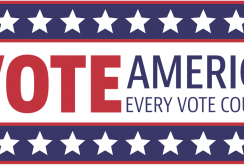It has been a difficult first week back to teach online. As has been my practice for about a year, I begin each course at the University of Washington with a single slide that encapsulates the latest information I have on the pandemic. To that, I added an introduction to the SolarWinds data breach for my emerging cyber topics course on Monday. On Thursday, I created several slides on the invasion of the U.S. Capitol on January...










